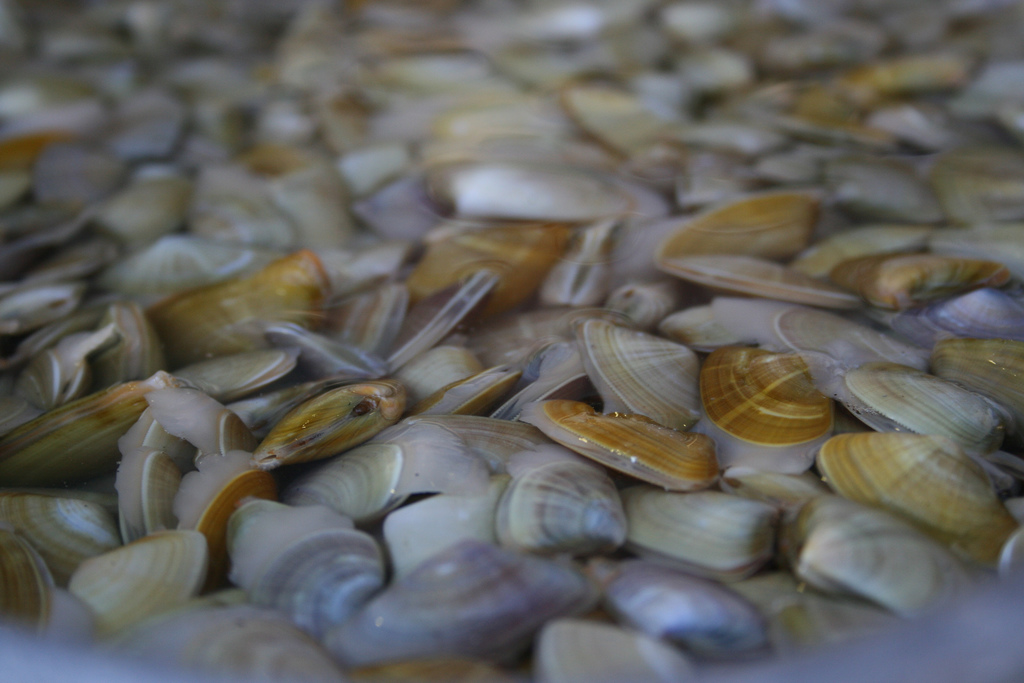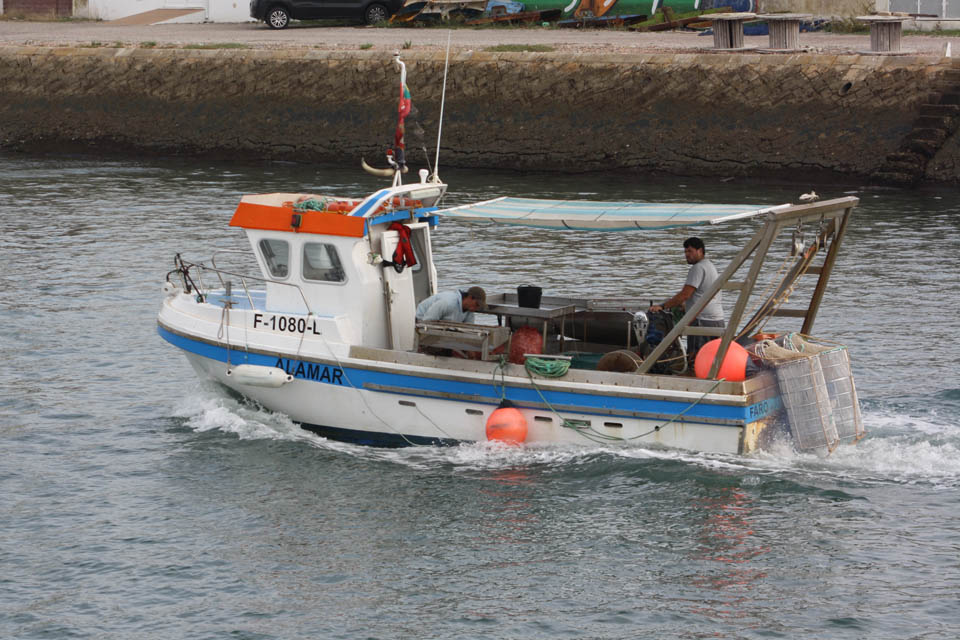 The Union of Fisheries Workers of the South and Olhãopesca – is concerned about the ban on the capture of clams in the Algarve, due to toxins. According to the union, this is "a very serious situation from the point of view of loss of income" for fishermen fishing with hooks and hooks.
The Union of Fisheries Workers of the South and Olhãopesca – is concerned about the ban on the capture of clams in the Algarve, due to toxins. According to the union, this is "a very serious situation from the point of view of loss of income" for fishermen fishing with hooks and hooks.
In a statement sent to newsrooms, the union says that "the ban that was decreed by IPMA several months ago causes disastrous consequences for the living conditions and well-being of their households."
The union leaders say that the authorities claim that "these fishermen can catch other species of bivalves, such as donkey feet and white clams, which are sold for between €0,70 and €0,75 kg" and question these prices. , «how is it possible for this sector of activity to survive? This is when the shellfish has a price per kilo at auction varies between €2,50/kilo and €3,00/kilo, which would allow some economic relief, even if small».
The union says that it has been questioned by the crew of vessels engaged in hooker fishing about the results of the analyzes and the way in which they are carried out, namely “how it is possible that in less than 24 hours the capture of bivalves is banned and if it lifts this ban, as happened recently when the ban is lifted and, in the afternoon of the following day, its capture is again banned».
The fishermen's strangeness in relation to the lifting of the bans is justified because the authorities "say that the result of the analyzes can only be known four days after they were carried out".

The union also says that "in some cases, these bans are decided on the basis of unavailable samples, which happens very often."
"Is it supposed to be possible to admit that the ban on collecting bivalve molluscs, without the existence of an available sample, is taking place without these being affected by the presence of toxins?", asks the document.
If this is confirmed, the statement continues, "who is responsible for the damage caused to professionals in this activity resulting from this unjustified ban that prevents them from exercising their professional activity in a normal manner?".
The union recalls that, despite the existence of a Wage Compensation Fund for Fishing Professionals, its application "is highly bureaucratic" and that "the expectations created at the time of its creation were quickly defrauded, because the legislator soon had the "care" of instructing that diploma with highly restrictive rules, whether in the material or in the personal plan, which makes it very difficult to allocate any salary compensation to fishing professionals through that diploma».
Olhãopesca – Association of Fisheries Producers of the Algarve has also already shown its concern about the ban on the capture of shellfish. The association says that «in the last four years, this activity has been severely harassed by bans on the capture of bivalve molluscs, increasingly frequent, random and prolonged, due to the presence of DSP toxin (toxins that cause diarrheal poisoning), above the regulatory value , with particular focus on the shell species (anchor species of the activity)'.
The association explains that "in the name of public health and food safety, during these periods professional shipowners and fishermen go into inactivity, as fishing aimed solely at donkey feet and/or white clams is not commercially viable." creating “a social problem, as entrepreneurs, shipowners and fishermen have no other source of production and income”.
However, says Olhãopesca, "during the aforementioned periods of interdiction of capture and commercialization, with the consequent and inevitable inactivity of professionals, hundreds of dismounted catchers, licensed or not, as well as thousands of tourists and vacationers, collect clams in considerable quantities in the extensive beaches of the eastern Algarve in view of the inertia of the Maritime Authority».
This situation, according to Olhãopesca, «occurs mainly in the summer months, when it is common to see people on the beaches with liter water bottles and half full of shellfish,
almost always smaller than the minimum capture size (25 mm)».
The association says that, «despite the bans due to the presence of toxins, there is high consumption in people's homes, vacationers and in many riverside restaurants. Even so, there has never been, to date, news of generalized poisoning due to the consumption of clams”, occurring “much more quickly and frequently due to the consumption of sushi, eggs, among others”.
For Olhãopesca, “these facts clearly indicate two of three things: 1 – there is no adequate inspection and control by the competent authorities, 2 – the clams do not have DSP toxins;
3- the regulatory levels of DSP toxins that lead to the interdiction of capture, commercialization, do not affect humans».
The fishermen's association considers that, "in view of this harsh and sad reality", fishing with hook-shaft gear towed by boat, in the southern zone, "will very soon disappear to give way to a superficial economy, with very little contribution to maintenance and to the development of primary production, to the creation of jobs and wealth».


















Comments